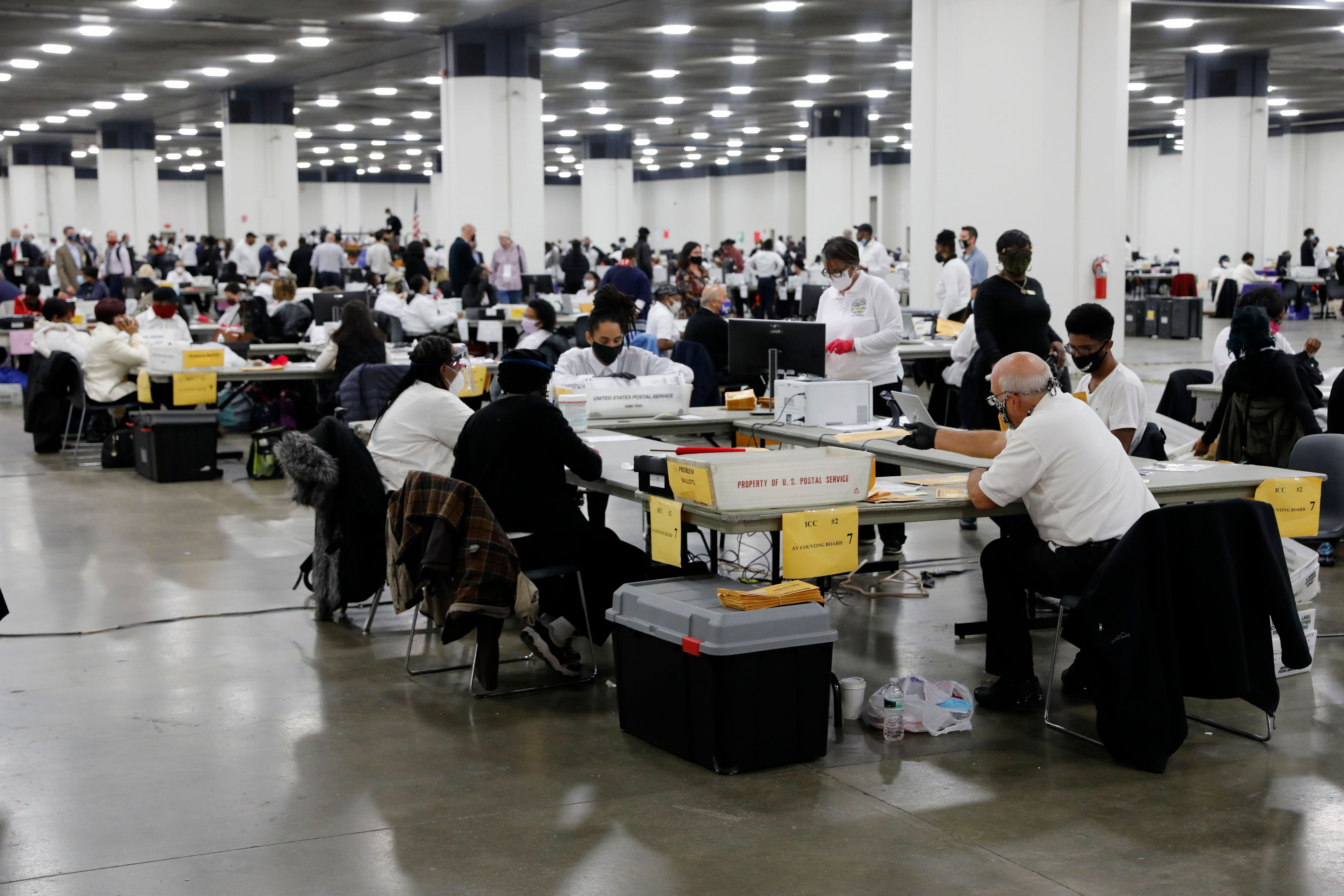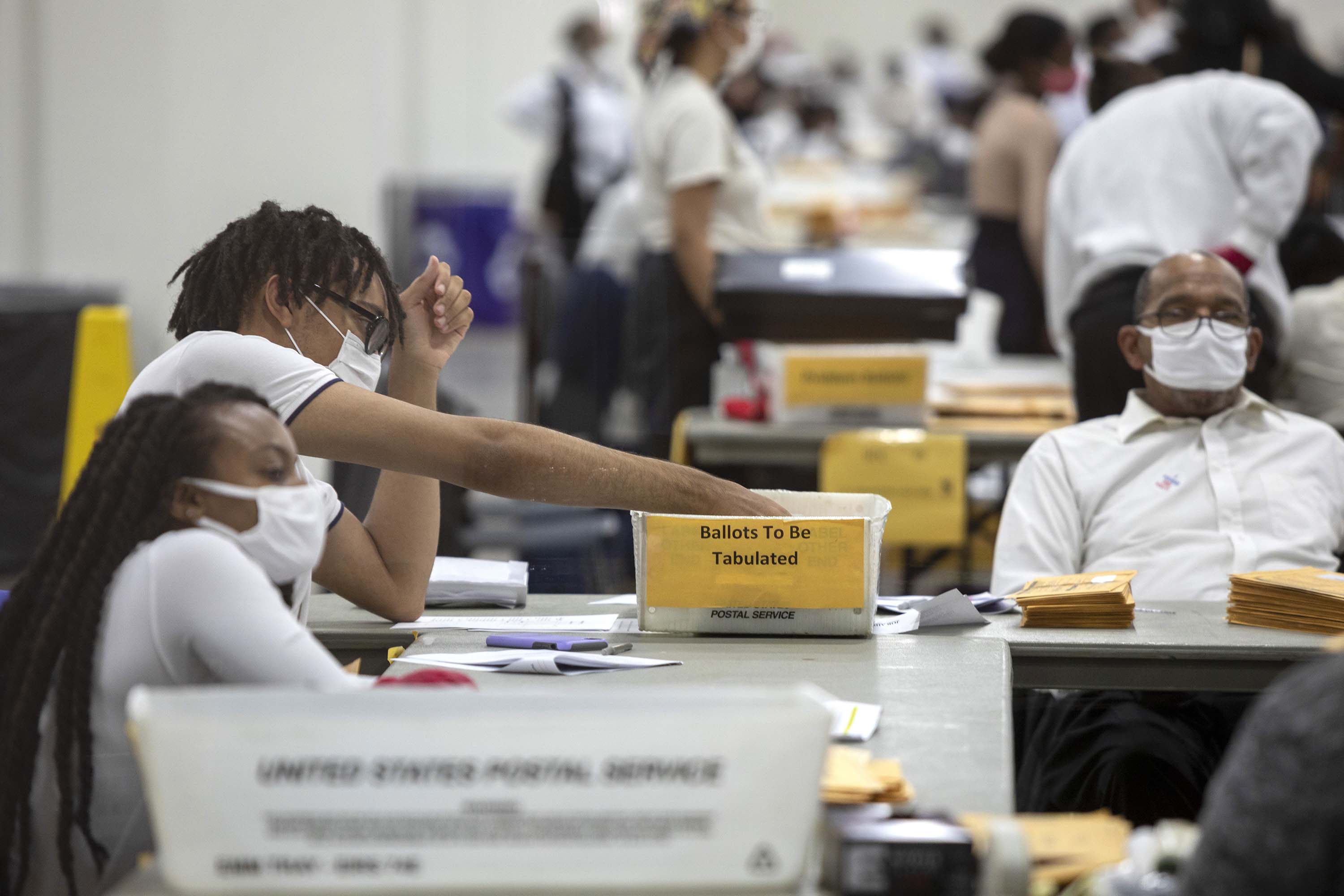
Votes are still being tabulated in key states. Here’s a closer look at the numbers in closely watched counties in those states.
“The simple fact is there are still votes to be counted … votes cast legally still to be counted in states where the margins are thin,” according to CNN’s Jim Sciutto.
In Georgia, 8% of the vote remains to be counted.
Fulton County, Georgia
- home to Atlanta
- 80% of the vote counted so far
- Absentee and mail-in vote counting resumed at 8:30 a.m. ET
DeKalb County, Georgia
- 80% of vote counted so far
- Absentee and mail-in vote counting resumes at 11 a.m. ET
In Michigan, 14% of the overall vote still needs to be counted. The Michigan secretary of state told CNN that “hundreds of thousands” of votes still need to be counted in the state as a whole.
Wayne County, Michigan
- home to Detroit
- 64% of the vote counted
“In both those states, it's urban areas that tend to favor Democrats. The question, of course: Is it enough to turn the results in those states, and ultimately given their position as battleground states in this election, to turn the election overall?” Sciutto said.
In Wisconsin, 3% of the vote remains to be counted, while in Pennsylvania, 25% remains. Pennsylvania allows mail-in votes to be received and counted up until Friday.



